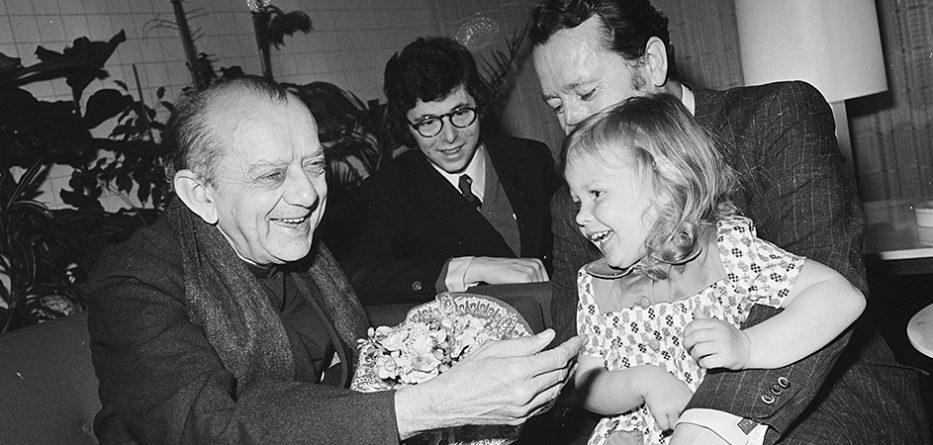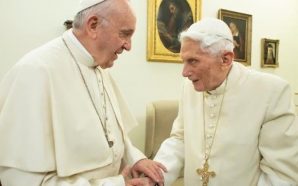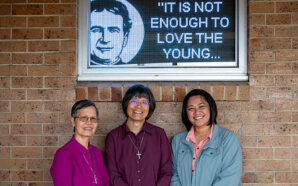All of us want to be liked. We naturally fear rejection. Worse, it must be difficult to live in some cultures where people openly despise others because of their ethnicity or looks, or even religion.
Certainly some of us can remember when Irish Catholics of a previous generation in Australia were sometimes mocked and reviled in those more sectarian days.
It can’t have been easy for them. Sadly, we can still witness the occasional resurfacing of such anti-Catholic feeling—even in contemporary, politically correct and ‘tolerant’ Australia.
Yes, it can be endured stoically—sure. But how can Jesus actually ask us to contemplate rejoicing when we are cruelly rejected?
There is a strange yet wonderful story from The Little Flowers of St Francis that deals with this paradoxical Gospel challenge.
One winter’s day St Francis was coming from Perugia with Br Leo, and the bitter cold made them suffer keenly. St Francis said:
Br Leo, even if the Friars Minor in every country give a great example of holiness and integrity …nevertheless write down that perfect joy is not in that… even if a Friar Minor gives sight to the blind, heals the paralysed, drives out devils, gives hearing back to the deaf, makes the lame walk, and restores speech to the dumb, and what is still more, brings back to life a man who has been dead four days, write that perfect joy is not in that.
Eventually, Br Leo in amazement asked Francis, ‘Father, I beg you in God’s name to tell me where perfect joy is’. And St Francis replied:
When we come to St Mary of the Angels, soaked by the rain and frozen by the cold, all soiled with mud and suffering from hunger, and we ring at the gate of the Place and the brother porter comes and says angrily ‘Who are you?’ And we say: ‘We are two of your brothers.’ And he contradicts us, saying: ‘You are not telling the truth. Rather you are two rascals who go around deceiving people and stealing what they give to the poor. Go away!’ He makes us stand outside in the snow and rain, cold and hungry, until night falls—then if we endure all those insults and cruel rebuffs with joy and patience, reflecting that we must accept and bear the sufferings of the Blessed Christ patiently for love of Him, oh, Brother Leo, write: that is perfect joy!
Perhaps this is a beatitude which cannot be so much rationally explained as experienced.
Theology is one thing but it is ultimately the stories of Spirit-filled persons who somehow live out this mystery that move us.
When I think of a witness of such Gospel ‘perfect joy’ in my life, I think immediately of Dom Helder Camara of Recife, who visited Australia 30 years ago in May 1985.
Dom Helder was a small man, just over five feet tall. His English was highly accented. But he was full of energy. His whole body was expressive of the energy of God in his heart.
A man of deep prayer, as bishop of Recife, in the poor north-east of Brazil, he took the side of the poor. He was such a threat to those in power that the Brazilian military government banned him from speaking publicly for 13 years and prohibited the media from mentioning his name.
He was above all a man of both prayer and action. He would rise at 2am to pray. He was an outspoken advocate of the poor and of non-violence, rooted in a prayerful love of God. He lived simply in a small house, not in the colonial Archbishop’s mansion. His pectoral cross, like that of our Saviour, was wooden. He also carried the heavy cross of being misunderstood, ridiculed and reviled by many powerful people, both within and without the Church.
Dom Helder spent his last years in especially great personal suffering, with so much of his pastoral work being undermined by his successor.
Yet he remained a man of deep joy. At his daily Eucharist he was given the ‘gift of tears’ and literally wept with joy, especially at the moment of consecration. Dom Helder was ‘one’ with his crucified and risen Lord.
This, then, is definitely a Gospel ‘beatitude’ that is ‘caught’, not ‘taught’. It is a holy ‘dis-ease’ and a sure sign of the mysterious presence of the Risen Jesus in a disciple. St Francis and Dom Helder pray for us! Help us sinful and weak followers of Jesus to ‘catch’ it—even if only occasionally! Help us to be like these holy people who were able to love their enemies….
This article is part of a series of reflections entitled Blessed Are You: Meditations on the Beatitudes & Daily Life by Br Mark O’Connor FMS.
Br Mark O’Connor FMS is the Vicar for Communications in the Diocese of Parramatta.








